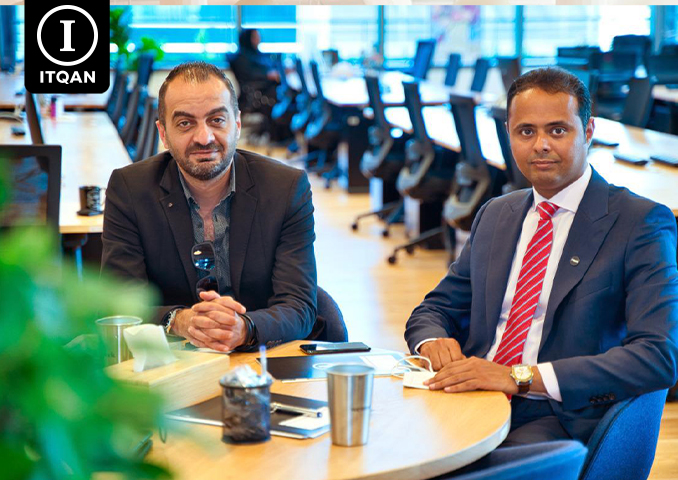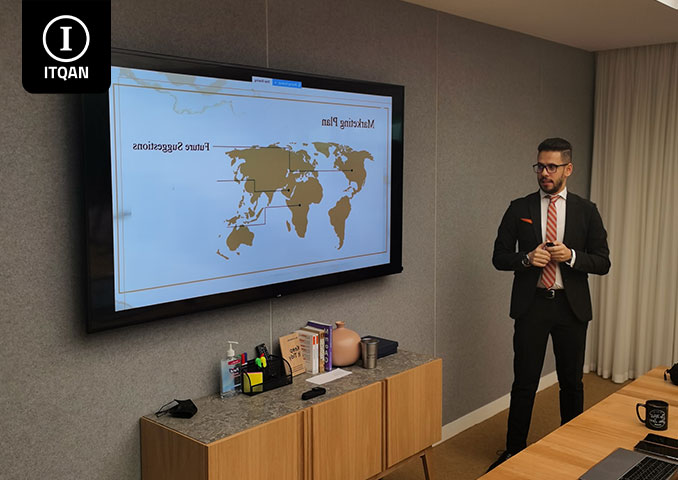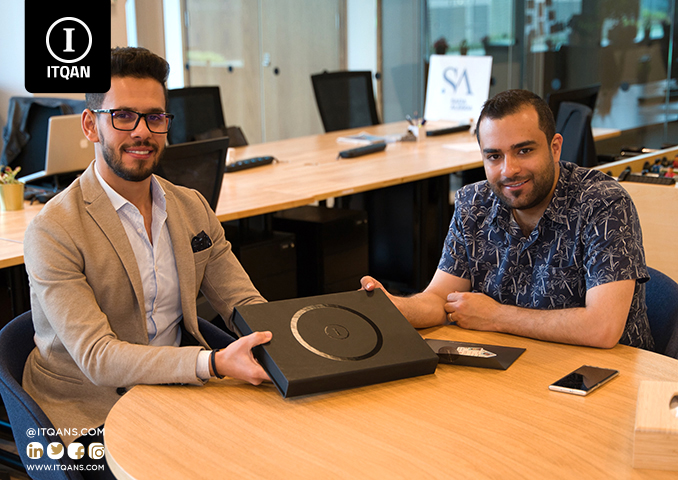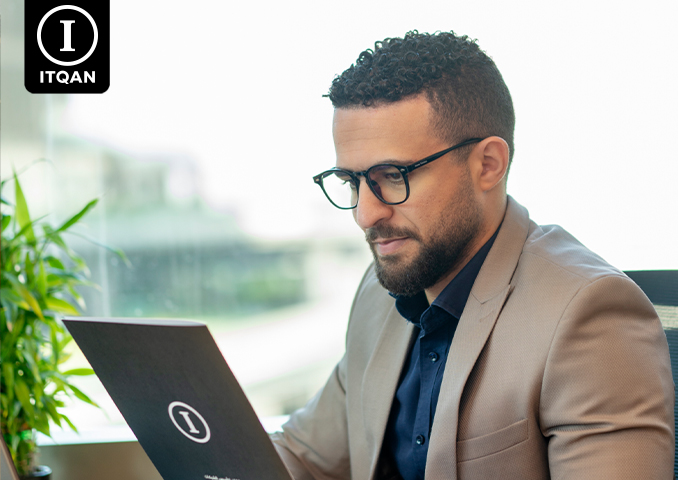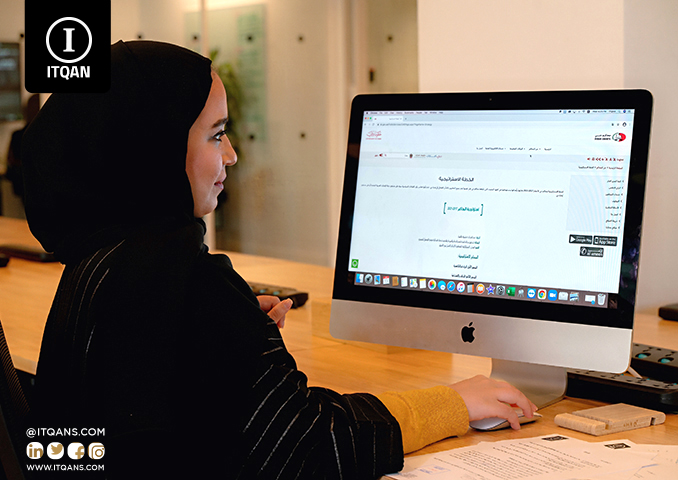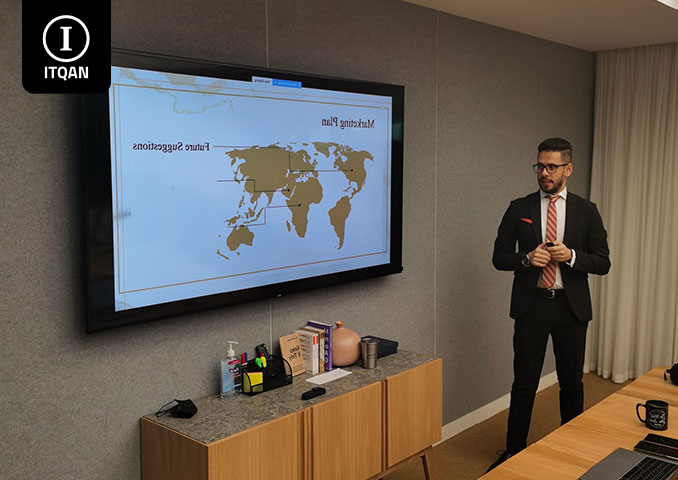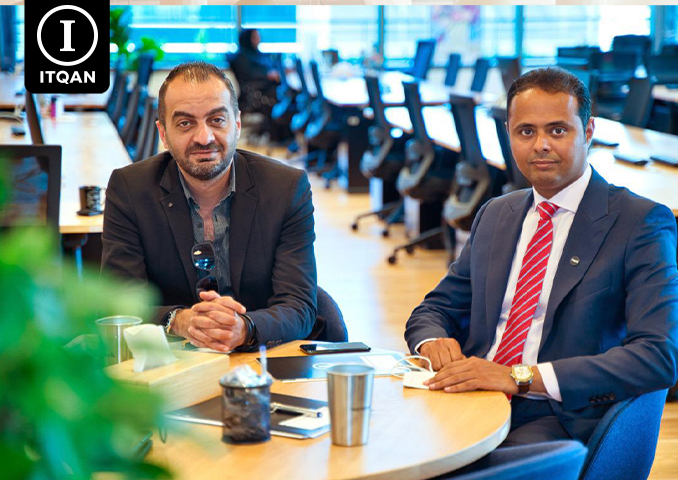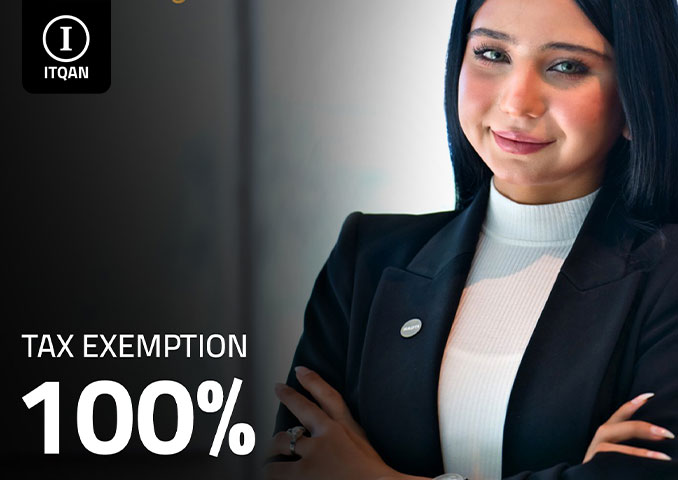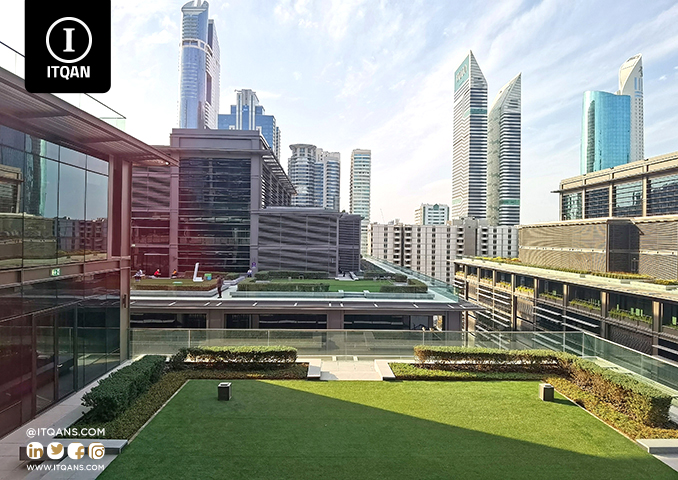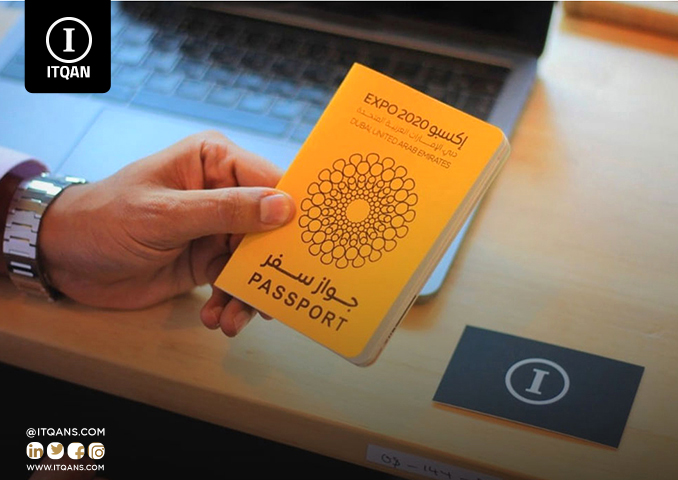Investment in the UAE is based on several axes, the most important of which is the investor’s determination of the type of company, along with the necessity of studying the laws that regulate that investment, in addition to knowing the procedures that are taken by developing a comprehensive vision of the type of this investment, and adopting the easiest paths that work to make many projects successful. It is held in the UAE, and the country has provided all the facilities that help the investor in the success of a large number of projects that work to grow the UAE economy and place it in the first ranks in the Arab and international levels. In this article, we will review some of the steps for investing in the Emirates .

Steps to invest in the Emirates
An investment in the UAE can be an excellent strategic move thanks to its stable economic environment and strategic geographical location. Here are basic steps to start investing in the UAE :
Determine the type of investment
- Commercial project : Determine the type of business activity you want to invest in (such as trade, services, industry).
- Real estate investment : Choose the type of real estate (residential, commercial, industrial).
- Financial investment : investing in stocks, bonds, or mutual funds.
market study
- Market Research : An in-depth study of the target market including competitors, demand, and opportunities.
- Feasibility assessment : Analysis of the economic feasibility of the project or investment you are planning.
Choose a location
- Free zones : offer benefits such as full ownership for foreigners and tax exemptions.
- Land Areas : May require a local partner and must comply with local laws.
Choose the type of legal entity
- Limited Liability Company (LLC) : Requires a local partner.
- Public or private joint stock company : listed on the stock market.
- Branch of a foreign company : It can be fully owned by the parent company.
- Free zone company : full ownership by foreigners.
Preparing legal documents
- Registration documents : articles of association, passports, proof of address.
- Licenses : Commercial, industrial, or professional license depending on the type of activity.
Submitting applications and licenses
- Licenses : Submit an application to obtain the appropriate license from the relevant authorities such as the Department of Economic Development in Dubai or the Free Zone Authority.
- Registration : Register the company in the commercial registry and obtain the commercial number.
- Opening an account : Opening a bank account in the name of the company and submitting the required documents to the bank.
- Visas : Obtaining work visas for employees (if there are employees).
- Insurance : Providing the necessary health and social insurance.
Compliance with laws and taxes
- VAT : Register for VAT if the activity requires it.
- Compliance : Adhere to all relevant local laws and regulations.
- Operational preparation : preparing facilities, securing equipment, and completing operational preparations.
- Marketing : Implementing marketing and promotional strategies to attract customers.
Consult local experts
- Legal Consultants : Using a consulting firm such as Itqan may be beneficial to obtain legal and business advice to ensure compliance with all requirements.
- Following these steps will help you establish a successful investment in the UAE and benefit from the great opportunities offered by the local market.
Benefits of investing in the UAE
There are many benefits of investment that are in the interest of both the investor and the state, while working to raise the individual’s standard of living, in that successful investment works to help the state prosper in the field of business, which makes it reap huge profits that are pumped into the state treasury and thus in the interest of the individual. By raising the efficiency of services and care provided to him by the state.
The Emirates Investment Authority is also working to create new job opportunities for the youth of the UAE by opening new markets in various fields of investment, in addition to strengthening external relations, which helps open areas of successful investment to businessmen, whether local or foreign.
The rapid development taking place in the United Arab Emirates helps the country flourish economically and works to increase commercial indicators that make it ranked alongside international countries to increase its economic standing.
Areas of investment in the Emirates
The UAE is one of the leading investment destinations in the Middle East, and has a wide range of areas in which one can invest. The most prominent of these areas are:
- Real estate: includes investment in residential, commercial, and hotel projects. Dubai and Abu Dhabi are the two main destinations for real estate investment in the country.
- Energy: Including renewable energy such as solar and wind energy, along with oil and gas.
- Tourism and hospitality: establishing hotels, resorts, and other tourist facilities.
- Trade: includes international trade, retail, and logistics services, with free zones specialized in this sector.
- Technology and Innovation: Investing in technology companies and stimulating innovation in areas such as artificial intelligence, information technologies, and financial information technology.
- Industry: including manufacturing, production, and infrastructure.
- Healthcare: Investing in hospitals, clinics, and medical centers.
- Education: Establishing schools, educational institutes, and training centers.
- Agriculture and Food: Investing in modern agricultural technology and food production.
- Finance and banking: including banks, insurance companies, and other financial services.
- Each field offers unique opportunities based on local and international need and demand, and the economic environment in the UAE.
The Dubai Investment Authority works to help the investor create a successful investment so that it benefits him and the UAE, in addition to providing many grants to people who have strong business plans that compete with giant projects.
Investment procedures in the Emirates
Investment procedures in the UAE include several important steps to ensure compliance with local laws and obtaining the necessary licenses. Here are the basic steps to follow:
- Conduct a comprehensive feasibility study for your project to determine its economic feasibility and potential for success in the UAE market.
- Determine the appropriate type of legal entity (such as a limited liability company, joint stock company, branch of a foreign company, or sole proprietorship).
- Deciding whether to establish the project in a free zone or economic zone. Free zones offer advantages such as full ownership and tax advantages.
- Choose a trade name that is compatible with local laws and submit it to the competent authority for approval.
- Preparing the required documents, such as the articles of association, lease contract, and copies of passports for the founders.
- Submit an application to obtain the required commercial licenses from the local economic department or competent authority.
- Opening a bank account in the name of the company in one of the approved banks in the Emirates.
- Register the company with the relevant government agencies and obtain a commercial registration certificate.
- Ensure the company complies with local laws, such as labor and tax laws.
- Recruiting workers and completing work and residency visa procedures if necessary.
- Preparing the office or facilities, and starting the actual operations of the company.
- Hiring legal and accounting consultants to ensure compliance with all laws and regulations.
These procedures provide a framework to successfully start investing in the UAE, and details may vary depending on the type of project, location, and specific economic region.
The best places for successful investment in the Emirates
The UAE offers a range of attractive investment opportunities thanks to its stable economic environment and advanced infrastructure. Here are some of the best places to invest in the UAE:
Dubai
- Free zones : such as Dubai International, Dubai Silicon Oasis, and Dubai Studio City. These areas provide benefits such as full ownership by foreigners and tax exemptions.
- Real estate : large projects such as “Burj Khalifa”, “Mohammed Bin Rashid City”, and coastal areas such as “Jumeirah” and “Dubai Marina”.
- Technology and Innovation : Districts such as “D3” (Design District) and “Dubai Internet City” provide opportunities in IT and innovation.
Abu Dhabi
- Free zone in Abu Dhabi : such as the free zone at Abu Dhabi Airport and the Business Bay area. These areas provide great facilities for investors.
- Real estate : large projects such as Yas Island, Saadiyat Island, and Khalifa City.
- Energy and Innovation : Masdar City focuses on renewable energy and clean technology.
Sharjah
- Sharjah Free Zone : Provides multiple options for businesses, including commercial, service and industrial activities.
- Real estate : development projects in areas such as the “Industrial Zone” and the “University City.”
Ajman
- Ajman Free Zone : Provides a favorable environment for investment with great facilities for small and medium companies.
- Real estate : new residential and commercial projects in different areas of the emirate.
Ras Al Khaimah
- Ras Al Khaimah Free Zone : It offers many advantages to companies, such as full ownership by foreigners and an encouraging tax environment.
- Real Estate : New residential and commercial projects, including development of coastal areas.
Fujairah
- Fujairah Free Zone : It is characterized by a strategic location and competitive advantages in the field of trade and services.
- Real estate : investment opportunities in residential and commercial projects.
Umm Al Quwain
- Umm Al Quwain Free Zone : Provides attractive options for companies in the fields of trade and services.
The field of tourism and hospitality
- Tourism projects : tourist attractions such as “Burj Park”, “Safa Park”, and major events such as “Expo 2020”.
- Hospitality : continuous development in the hotel and resort sector.
Health and education sector
- Hospitals and schools : Investment in the health sector and education is becoming more attractive as the demand for high-quality services increases. Your investment in any of these areas can be worthwhile if the most appropriate type is chosen based on market study and available opportunities

Investing in Jebel Ali
Jebel Ali, which is considered one of the most prominent economic areas in Dubai, offers diverse and distinct investment opportunities. Jebel Ali is strategically located as a global logistics center thanks to Jebel Ali Port, which is one of the largest seaports in the world. This site contributes to facilitating the movement of goods and providing easy access to regional and global markets. The region provides a distinctive business environment through free zones equipped with modern infrastructure, allowing companies to benefit from full ownership of companies, tax exemptions, and accelerated licensing procedures. In addition, Jebel Ali attracts investments in a variety of sectors, including manufacturing, trade, and logistics, making it an attractive destination for investors looking for growing business opportunities in a vibrant region.
At the conclusion of our article on steps to invest in the Emirates , we can clearly see that the Emirates offers an ideal environment for investment thanks to its advanced infrastructure, stimulating economic policies, and broad opportunities in various sectors. By following the specific steps, from studying the feasibility of the project to obtaining the necessary licenses, investors can achieve great success and maximize the returns on their investments. Investing time and resources in understanding procedures and complying with legal requirements in the UAE enhances the chances of achieving business goals and sustainable growth. Ultimately, the UAE represents a strong platform for investors looking for new and innovative opportunities in one of the most vibrant and affluent markets in the region.
Frequently asked questions about investing in Dubai
What are the basic steps to invest in Dubai?
The basic steps begin with studying the feasibility of the project, choosing the appropriate type of company and legal entity, choosing a free zone or economic zone, registering the company and obtaining the necessary licenses, opening a bank account, and the company’s compliance with local laws and regulations.
Can foreign investors fully own companies in Dubai?
Yes, in Dubai, foreign investors can fully own companies in free zones, while in onshore areas a local partner is required to own a share of no less than 51% of the shares.
What advantages do free zones in Dubai provide to investors?
Free zones in Dubai provide advantages such as full company ownership, tax exemptions, no restrictions on transferring profits abroad, and ease of company registration procedures.
What are the costs associated with setting up a company in Dubai?
Costs include registration and licensing fees, office rental costs, bank fees, and other costs such as special licenses and insurance. These costs vary based on the type of company and its location.
How can I obtain work visas for investors and employees in Dubai?
Work visas can be obtained by submitting an application to the Department of Economic Development or the Free Zones Authority in which the company is registered. Required documents such as passport and contracts are required.


